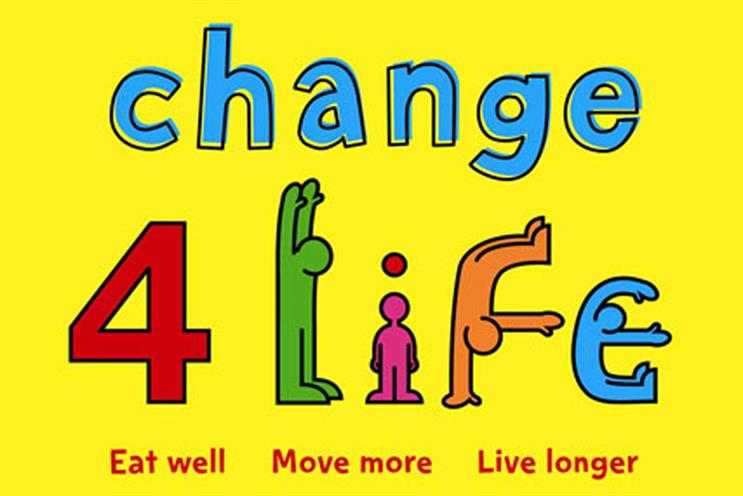Public Health England needs to up its game. In the wake of this week’s news about the shocking rise in obesity-related cancers among young adults, I am left questioning what kind of impact the government’s Change4Life healthy-eating campaign is actually having on this audience.
Since 2009, Change4Life has been trying to persuade the nation, in particular its kids, to cut its level of sugar intake, eat more fruit and veg, and get more active. Given the millions of pounds of taxpayers' money that’s been invested, you would like to think regular and sensible measurement assures its budget holders that there has been a positive, long-term ROI on the campaign.
Assuming that’s true, I have a hunch that the success is largely down to incredible, inspiring teachers and parents up and down the country, rather than the now dated and arguably patronising look and feel of its marketing materials – lazy primary colours and Aardman-produced cartoon characters reminiscent of its Morph work for Tony Hart back in the 1970s.
While any government investment and marketing effort aiming to make life better is admirable, I can’t help but think that, by now, 10 whole years on from Change4Life’s launch, there could be much more relevant and engaging ways to trigger behavioural change and to effectively use finite resources to achieve a desired outcome.
Being one of the first of campaigns of its kind to be based largely around social media, it was innovative and fresh in the early days.
But we’re all well aware of how different that landscape now is in comparison to 2009: the rise of pay-to-play platforms for brands; an explosion of content to compete with (mostly terrible, inaccurate or blocked outright); increasingly image- and video-based feeds; and an abundance of highly influential unboxers/gamers/make-up artists/bubble-wrap pinchers uploading their every movement.
Social media has moved on a lot; as have the types of creative approaches, design principles and visual identities we as a nation are surrounded by and most likely to be receptive to.
This context made me particularly welcoming of independent think tank The Food Foundation and ITV’s new advertising campaign and initiative Veg Power. Demonising the vegetables feels a bit risky on the surface but, actually, it perfectly taps into the mindset of kids who idolise superheroes and role-play epic battles against evil.
Let’s face it, we’re never going to convince kids that sprouts are worthy of a cape and mask, so we might as well go along with the "veg is evil" argument. This high-production, energetic, real-world-based creative is a breath of fresh air from the usual lazy, patronising and uninspiring efforts you tend to get with initiatives like this, which often talk down to their targets.
Both the ad industry and government agencies alike can learn a lot from the menacing sprout-packed approach.
Those in government responsible for the hundreds of millions it spends on advertising campaigns and initiatives should be putting measurement and effectiveness at the heart of what they do, holding creative strategy and excellence in high regard to ensure outputs resonate and continue to resonate with audiences.
They also need to look beyond their departments and proactively partner brands, publishers, public figures (including social media influencers) and media owners to reach the right people in the right ways and achieve impact.
The question has to be asked as to why it was left down to an independent think tank and corporations to handle what was .
We as industry professionals should, as many already do through organisations such as Media Trust, reach out to government bodies and non-for-profits and provide our services and smarts to important programmes for the greater good.
For creative strategists in particular, the stark contrast between Change4Life and Veg Power stands as a reminder. As well as establishing audience insights and strategic revelations to provide creative teams with a fertile springboard for big ideas, we need to support our teams in ensuring the final execution is as relevant to the audience’s favoured aesthetics as the storyline is to their interests, attitudes and behaviours.
Tony Wright is head of creative strategy at Eight & Four


